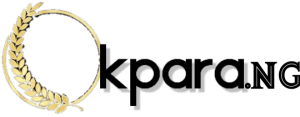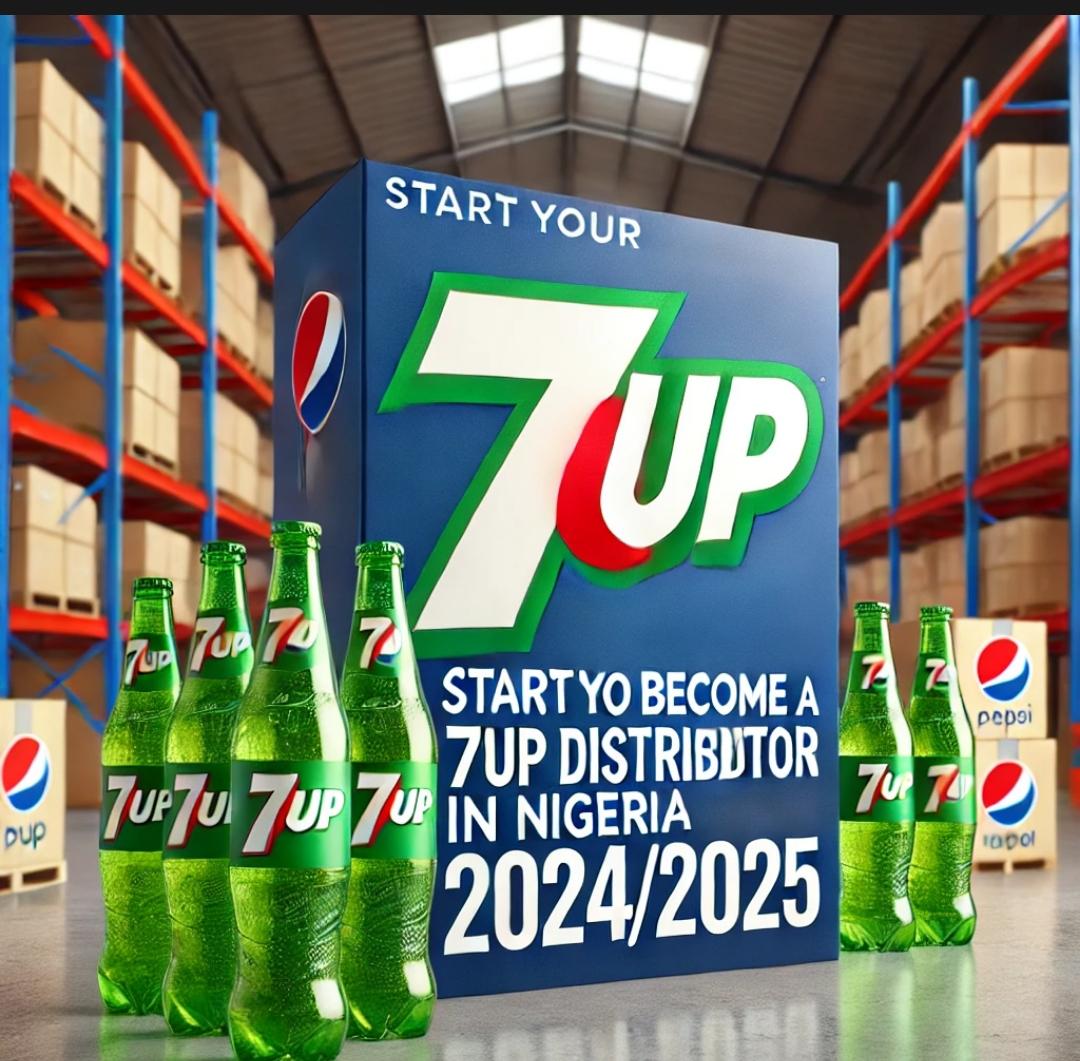In Nigeria, 7Up Bottling Company is a dominant player in the beverage industry, producing and distributing brands like 7Up, Pepsi, Mirinda, Mountain Dew, Teem, Lipton Iced Tea, and Aquafina. Given the steady demand for these drinks across Nigeria, becoming a 7Up distributor can be a profitable business venture. This guide will walk you through every step required to start, including the application process, capital requirements, profit margins, current product prices, and tips for growth. Let’s dive in!
1. Introduction to 7Up Bottling Company in Nigeria
Why Become a 7Up Distributor?
7Up is a household name across Nigeria, with consistent demand throughout the year, and it’s highly popular in markets, schools, restaurants, and homes. Given the reputation of the brand and steady market growth, 7Up products are easier to sell than lesser-known brands. The company also supports its distributors with marketing materials, technical guidance, and other incentives, making it one of the top distribution options in the Nigerian beverage industry.
Potential for Profit
As a distributor, you can expect a margin of 15% to 25% on products. With careful management, a 7Up distribution business can generate impressive profits and potentially reach ROI (return on investment) within 12 to 18 months, depending on your region and the scale of your business.
2. Understanding the 7Up Distribution Model
Types of 7Up Distributors
There are two main types of distributors under 7Up Bottling Company:
- Major Distributors: These distributors buy directly from 7Up Bottling Company, typically in large quantities, and distribute to sub-distributors or retailers.
- Sub-Distributors: These distributors buy smaller quantities from major distributors to distribute to retailers or sell directly to customers in their area.
Roles and Responsibilities
Each level has specific responsibilities:
- Storage: Secure and hygienic warehouse facilities.
- Delivery Logistics: Transportation and distribution management.
- Customer Management: Building and maintaining relationships with local retailers or sub-distributors.
Key Benefits and Challenges
The main advantages of becoming a 7Up distributor include brand support, established market demand, and good profit margins. However, challenges include competition, logistics issues, and potential transportation costs due to Nigeria’s infrastructure.
3. Market Research and Feasibility Study
Before you begin, conducting market research is crucial. Here’s a practical breakdown:
Assessing Market Demand
Research your target market to understand the demand for 7Up products. Urban centers like Lagos, Abuja, Kano, Port Harcourt, and Ibadan have a high demand due to population density, but smaller cities and towns may also offer strong market potential with less competition.
Competition Analysis
Identify other distributors in your area and the soft drink brands they carry. Knowing your competitors helps in planning your marketing strategy and setting up unique selling points (USPs) for your distribution business.
Logistics and Transportation Considerations
Having reliable transportation is crucial. Consider the cost of vehicles, fuel, and maintenance, especially if you plan to cover a large region. Renting trucks initially might be an option if purchasing is not feasible right away.
Financial Feasibility
It’s important to estimate:
- Initial Costs: Cost of stock, warehouse setup, and delivery vehicles.
- Profit Margins: Average margin ranges from 15% to 25%.
- Break-Even Analysis: Most distributors break even within 12 to 18 m
4. Requirements for Becoming a 7Up Distributor
General Requirements
- Capital: Minimum capital of ₦10 million to ₦15 million is typically required for major distributors, while sub-distributors may need ₦1 million to ₦5 million.
- Warehouse: A secure, strategically located warehouse with sufficient storage space.
- Transportation: Trucks or vans for efficient distribution.
Legal and Business Documentation
- Register Your Business with the Corporate Affairs Commission (CAC). Visit cac.gov.ng for the online registration portal.
- Tax Identification Number (TIN): You can get this from the Federal Inland Revenue Service (FIRS) via firs.gov.ng.
- Relevant Licenses and Permits: Check with local government authorities for any additional permits required to operate a distribution business.
Financial Record Requirements
7Up Bottling Company may conduct a financial background check, so having a clean financial history and experience in sales or distribution is a plus.
Step-by-step guide to becoming a Coca-cola distributor in Nigeria
5. The Application Process for Becoming a 7Up Distributor
How to Apply
- Contact 7Up Bottling Company:
- Start by contacting 7Up Bottling Company’s regional office. You can reach them through their website: sevenup.org, or directly call their Lagos headquarters at +234 01 2719111.
- Submit an Application:
- You will need to fill out the official application form and provide necessary documents such as business registration, TIN, and a proposal (if required).
- Prepare a Business Proposal:
- This should include your target market, financial projections, proposed territory, and operational plans.
Interview and Evaluation
Expect an interview and potential site visits from 7Up representatives. They’ll assess your suitability, including your warehouse, distribution plan, and financial stability.
6. Initial Investment and Financial Planning
Capital Requirements
- Major Distributor: ₦10 million to ₦15 million for initial stock, warehouse setup, and delivery vehicles.
- Sub-Distributor: ₦1 million to ₦5 million for smaller stock quantities and basic operations.
Financing Options
Explore funding options like:
- Personal Savings.
- Bank Loans: Many Nigerian banks offer SME loans.
- Government Grants: Check for government-backed funding schemes for SMEs via smedan.gov.ng.
Expected ROI and Profitability
7Up distributors generally achieve ROI within 12-18 months, with profit margins of 15% to 25%.
7. Setting Up Your 7Up Distribution Business
Warehouse Setup and Inventory Management
Choose a centrally located warehouse that’s easy to access. Consider using inventory management software like Zoho Inventory or Odoo to keep track of stock levels, expiration dates, and deliveries.
Logistics and Transportation
Reliable transportation is key. Start with one or two delivery vehicles based on your distribution scale. If needed, you can partner with third-party logistics providers.
Building Retailer Relationships
Approach local retailers, supermarkets, and small shops. Offer incentives or discounts to build loyalty. Attend local business events and networking opportunities to expand your retailer base.
HOW TO BECOME A COCA COLA DISTRIBUTOR IN NIGERIA
8. Marketing and Expanding Your 7Up Distribution Business
Branding and Marketing
Utilize the established 7Up brand in your promotional materials. Social media is effective for local businesses in Nigeria; create pages on Facebook and Instagram to reach local retailers.
Building Customer Loyalty
Create customer loyalty programs to encourage frequent purchases from retailers. Offer discounts for bulk orders or incentives for regular buyers.
Expansion Strategies
Once you achieve stable cash flow, consider expanding into new territories. Contact 7Up for approval if you plan to operate outside your original distribution area.
9. Operational Management and Compliance
Inventory and Stock Control
Use the FIFO (first-in, first-out) method to ensure products don’t expire. Regularly conduct stock audits to manage shrinkage and control damages.
Compliance with 7Up Standards
7Up Bottling Company expects distributors to maintain product quality and comply with brand guidelines. This includes clean storage, proper handling, and up-to-date branding.
Financial Management
Track income, expenses, and taxes using accounting software such as QuickBooks or Wave Accounting.
10. Current 7Up Product Prices and Profit Margins
Below is a price list based on current wholesale rates, which are subject to change:
- 7Up (50cl bottle) – ₦100 per bottle
- Pepsi (50cl bottle) – ₦100 per bottle
- Mirinda – ₦90 per bottle
- Mountain Dew – ₦100 per bottle
- Aquafina Water (75cl) – ₦60 per bottle
These wholesale prices allow you to apply a 15-25% markup when selling to retailers, yielding a potential profit margin in line with typical Nigerian beverage distribution.
11. Frequently Asked Questions (FAQs)
Q: How much capital is required to start?
- Major distributors need at least ₦10 million. Sub-distributors can start with ₦1 million to ₦5 million.
Q: What is the profit margin?
- Profit margins average between 15% and 25% depending on location and competition.
Q: How can I contact 7Up Bottling Company?
- Visit sevenup.org for contact details, or call their Lagos office at +234 01 2719111.
Q: What kind of support does 7Up provide?
- 7Up may offer marketing support, brand materials, and technical guidance.




